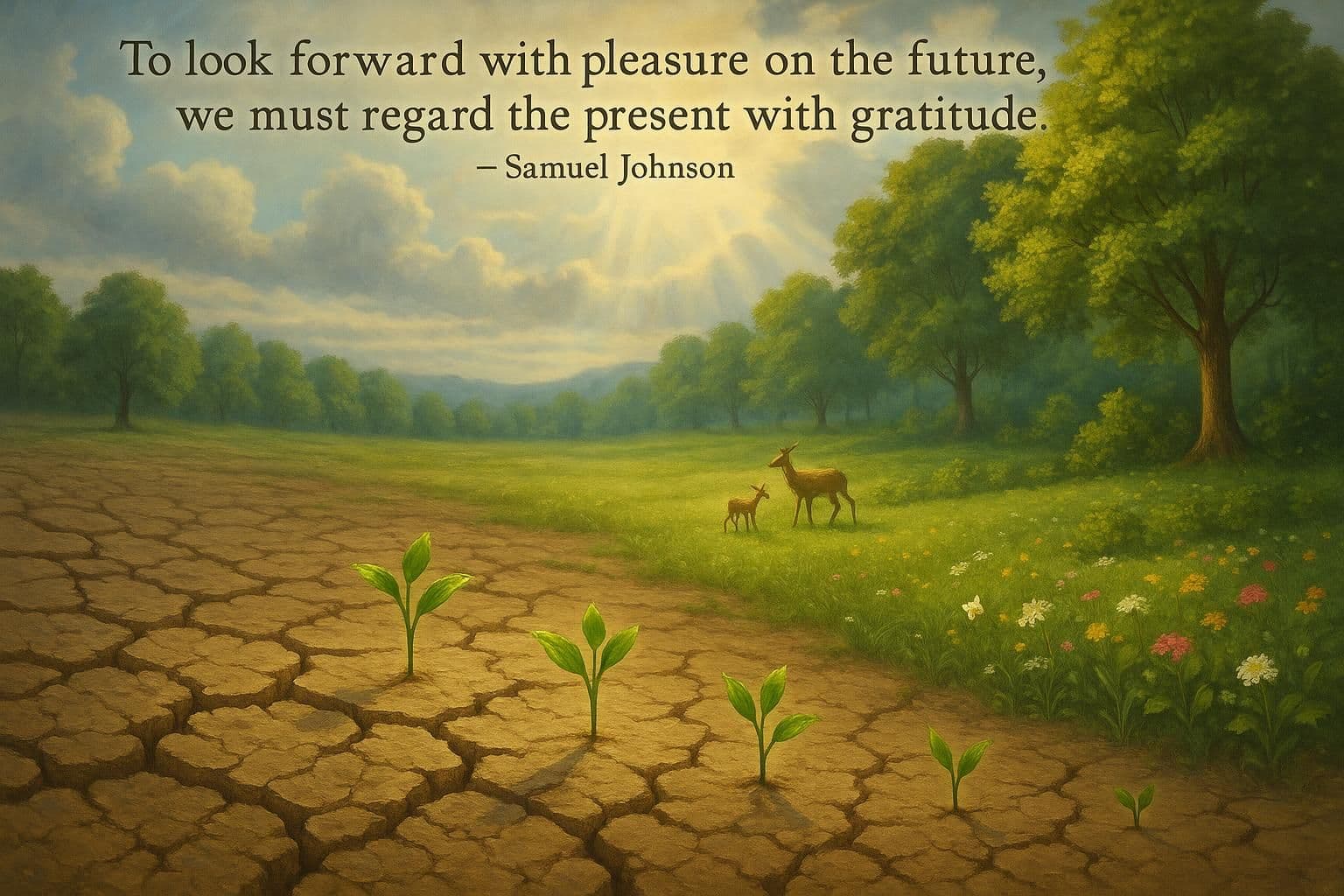Investing in Tomorrow: The Present’s Lasting Impact

The future is purchased by the present. — Samuel Johnson
—What lingers after this line?
One-minute reflection
Why might this line matter today, not tomorrow?
The Nature of Time’s Exchange
Samuel Johnson’s observation that 'the future is purchased by the present' suggests a transactional relationship between what we do now and what awaits us. Much like a marketplace, every choice and action taken today becomes the currency with which we buy the possibilities of tomorrow. Johnson’s metaphor reminds us that the present moment is not isolated—it is the foundation upon which our destinies are constructed.
Historical Lessons in Present Investment
Reflecting on history, we see societies and individuals shaping their futures by investing in their present circumstances. For example, the careful planning and labor of ancient builders, showcased in the enduring Great Wall of China, demonstrate how present effort bears fruits for generations. Similarly, the sacrifices made during pivotal moments, such as the American Civil Rights Movement, reveal how present actions can secure a better, more just future.
Philosophical Perspectives on Action and Consequence
Transitioning to philosophy, Johnson’s maxim resonates with the principle of cause and effect found in Stoic thought. Marcus Aurelius, in his 'Meditations' (c. 180 AD), frequently reminds readers that virtues and well-considered actions practiced today shape the course of one’s life. The future, then, is not a distant abstraction but a sequence of results stemming directly from present intentions.
Personal Responsibility and Deliberate Choice
This interconnection between now and next also assigns individuals a profound responsibility: our current decisions will inevitably shape our conditions later. Whether it’s pursuing education, nurturing relationships, or stewarding health, these investments influence outcomes that may only become visible after much time has passed. Thus, Johnson’s insight prompts us to approach daily life with purpose and foresight.
Modern Applications: Delayed Gratification and Growth
Finally, the wisdom embedded in Johnson’s words is echoed in contemporary concepts like delayed gratification. Psychologist Walter Mischel’s famous 'marshmallow experiment' (1972) demonstrated how the ability to forgo immediate rewards for greater future benefits leads to long-term success. Therefore, the present moment, filled with deliberate actions and choices, truly becomes the down payment on the future we desire.